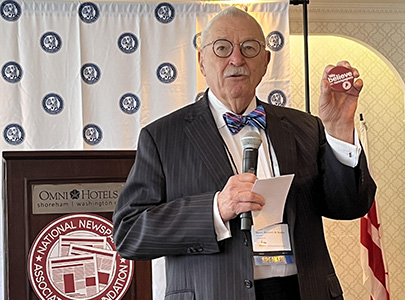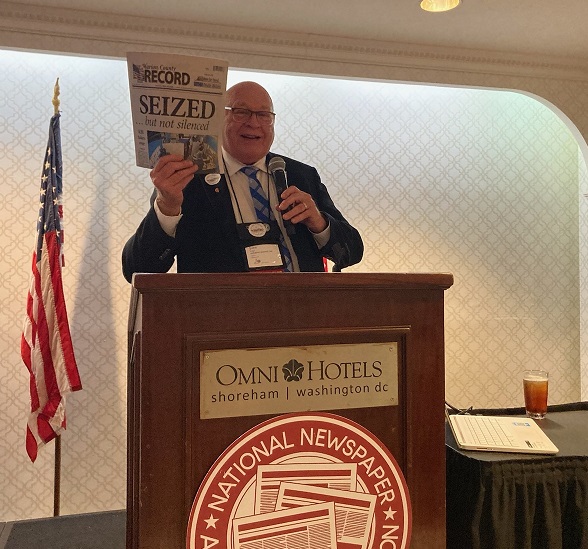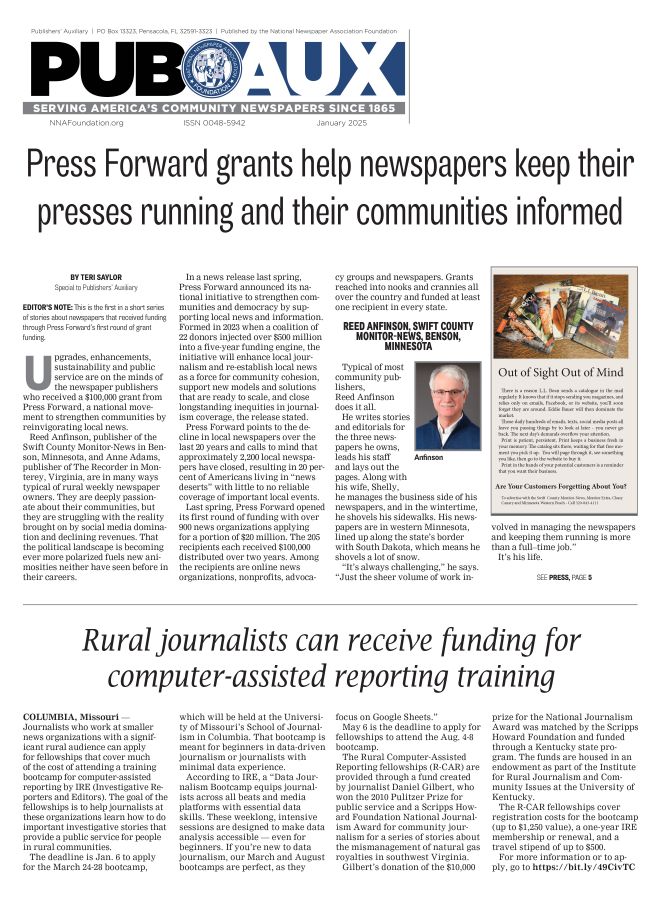Perspective: Celebrating World Press – and our – Freedom Day
First Five by the Freedom Forum Institute
Apr 29, 2021
GENE POLICINSKI
Download Word doc here.
Welcome to World Press Freedom Day 2021 — especially those of you not cheering that news.
There’s little doubt that’s a lot of people.
A recent survey conducted by the Media Insight Project set out five core principles or beliefs the American Press Institute and The Associated Press-National Opinion Research Center (NORC) Center for Public Affairs Research said drive most journalists:
- Keeping watch on public officials;
- Giving voice to the less powerful;
- Providing transparency and access to information;
- Reporting facts to help people get to the truth;
- Spotlighting a community’s problems as a necessary step to solving them.
Only one of those roles — fact-finding — was endorsed by a majority of respondents. Half said it was important to give voice to the less powerful, less than half fully supported the roles of oversight and promoting transparency and less than a third agreed completely that a role of the press is to point out problems.
Worldwide, the nonpartisan group Reporters Without Borders issued its annual World Press Freedom Index April 20, noting that journalism, which it calls “the main vaccine against the virus of disinformation,” is blocked or seriously impeded in 73 countries and constrained in 59 others. Together, that represents 73% of the 180 countries evaluated.
In the United States, more and more frequently, police tactics include targeting journalists at public demonstrations.
Following repeated incidents of police violence against reporters after a recent police killing of a 20-year-old Black man in the Minneapolis suburb of Brooklyn Center, Gov. Tim Walz said, “We all need to recognize the assault on media across the world and even in our country over the last few years is chilling. ... We cannot function as a democracy if they're not there.”
The police attacks in Walz’s state were so blatant that a federal judge ordered state police to stop the assaults and halt rounding up journalists to photograph them and their IDs.
One recent victim in Minnesota was CNN producer Carolyn Sung. Reports said Sung was thrown to the ground, and “patted down and searched by a female officer who put her hands down Sung’s pants and in her bra.” She was fingerprinted and ordered to strip and wear an orange uniform before given access hours later to a lawyer.
USA TODAY reported that freelance photojournalist Tim Evans was tackled by officers who punched him in the face and sprayed him with a chemical irritant even as he identified himself as news media. Another photographer was attacked by officers who pounded on his car with wooden batons to force him out and used those same batons to beat him and his cameras.
In March, Des Moines (Iowa) Register reporter Andrea Sahouri was acquitted of all charges following her 2020 arrest while covering a Black Lives Matter protest. She had been pepper-sprayed and her hands zip-tied.
The situation in Minnesota — including the court order — is nearly identical to circumstances in Portland, Oregon, during protests there in 2020. U.S. District Judge Michael Simon wrote then: “Open government has been a hallmark of our democracy since our nation’s founding … When wrongdoing is underway, officials have great incentive to blindfold the watchful eyes of the Fourth Estate.”
Simon added that the assaults and illegal detentions there “tests whether these principles are merely hollow words.” That is the challenge to those observing World Press Freedom Day this year, or those who are at least open to understanding its meaning.
The group Committee to Protect Journalists reports that worldwide, three journalists have been killed thus far in 2021, more than 270 imprisoned through 2020 and 66 more are missing. In Hong Kong last week, publisher Jimmy Lai was sentenced to 14 months in prison for his role in pro-democracy protests there. He and other journalists there face national security charges that could result in life sentences.
In a larger sense, we’re all targets of that murder, violence and repression. As Gen. Colin Powell said recently in championing the role of the press as he accepted the Freedom Forum’s Free Expression Award: “The press is the public. The public is the press.”
The press stands in for the rest of us, bringing us news and information of the good, bad and what occurs each day, near and far.
We can and should support a free press without accepting or approving everything journalists do. We benefit most when the process works both ways — in effect, when we work as watchdogs on the watchdog — something more possible than ever given easy access for most to online media.
Press-haters, please don’t rely on those old canards about how “the media” — a widely diverse group — is biased, left wing or right wing. Surely, some are.
But in an era when more news is available from more sources in more ways than ever before, those criticisms say more about an individual’s lack of effort to get diverse viewpoints than they do about the role of a free press.
Freedom Forum surveys from 1997 through 2020 showed there is support among most Americans for the general role of a free press — even if many don’t like the press we have now.
World Press Freedom Day is actually World Our Freedom Day — and that’s something we all ought to celebrate.
Gene Policinski is a senior fellow for the First Amendment at the Freedom Forum. He can be reached at gpolicinski@freedomforum.org, or follow him on Twitter at @genefac.










